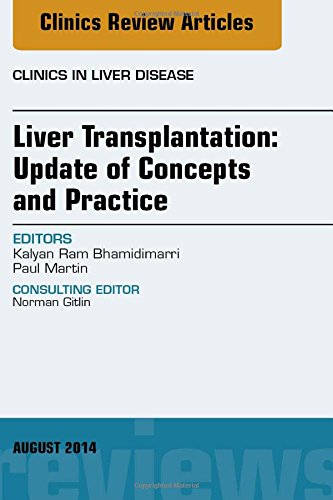

Most ebook files are in PDF format, so you can easily read them using various software such as Foxit Reader or directly on the Google Chrome browser.
Some ebook files are released by publishers in other formats such as .awz, .mobi, .epub, .fb2, etc. You may need to install specific software to read these formats on mobile/PC, such as Calibre.
Please read the tutorial at this link: https://ebookbell.com/faq
We offer FREE conversion to the popular formats you request; however, this may take some time. Therefore, right after payment, please email us, and we will try to provide the service as quickly as possible.
For some exceptional file formats or broken links (if any), please refrain from opening any disputes. Instead, email us first, and we will try to assist within a maximum of 6 hours.
EbookBell Team

4.8
44 reviewsA number of areas within liver transplant continue to evolve as the field matures. The advent of increasingly effective therapy for HCV will dramatically reduce the burden of recurrent disease within the next few years. HCC has become a well established indication for transplant with an increasing emphasis on adjuvant therapies to reduce the risk of tumor recurrence and potentially expand the acceptable limits of tumor burden amenable to liver transplant. Renal dysfunction is a frequent complication of decompensated liver disease and an important predictor of diminished post-transplant survival. Newer approached to therapy including terlipressin will reduce the impact of renal dysfunction in liver transplant candidates and potentially reduce the need for combined liver/kidney transplant. Increasing attention is being paid to role of comorbidities such as diabetes and hypertension on longterm recipient outcomes. Retransplantation remains a challenge with a variety of models available ot redict outcomes. Cardiac disease pretransplant is an area of active investigation with newer entities such as cirrhotic cardiomyopathy a growing concern. These are some of many evolving issues in liver transplant which will be addressed to update our readers and which in turn will enhance the care of patients with liver disease.